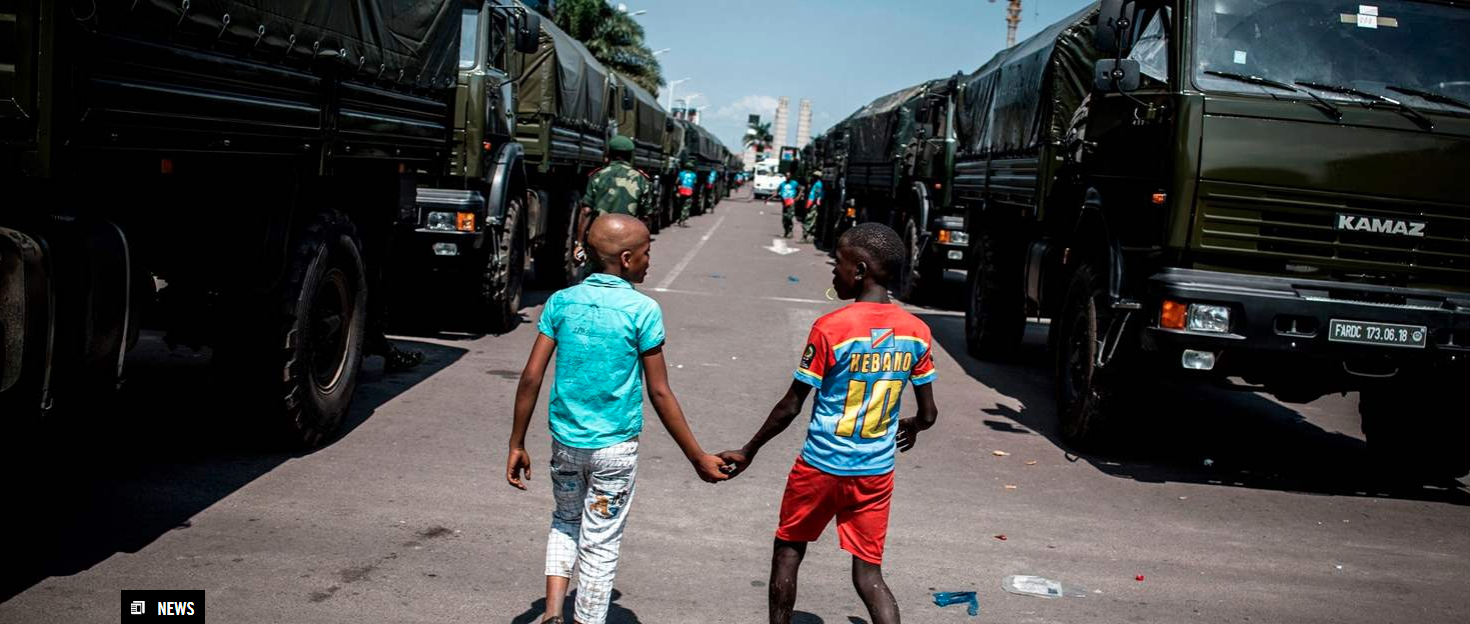As the Democratic Republic of Congo (DRC) braces itself for the long-awaited results of national elections, Amnesty International warned that a human rights crisis is looming in the country that could force countless people to flee if protests turn violent. More than 20,000 people have already fled the country since mid-December 2018.
“After multiple delays and prolonged waiting for the results of the election, the mood in the DRC is tense. The authorities appear to be preparing to escalate crackdown on protests, with many parts of the country under heavy military guard and many media outlets already shut down and muzzled,” said Joan Nyanyuki, Amnesty International’s Director for East Africa, the Horn and the Great Lakes.
“In the last few days police across the country have threatened and warned people not to take part in protests after the results are announced, sparking fears that demonstrations against the results will be dealt with brutally. The Congolese people are on a knife edge.”
Soldiers on the streets
In many parts of the DRC a heavy military presence is contributing to the tense mood.
In Lubumbashi and Kisangani, the army, police and non-uniformed intelligence officers have erected check points around the cities, and in Lubumbashi authorities have said these are aimed at “preventing” disorder.
Police in Ituri province and Goma in North Kivu province have explicitly warned people against joining protests following the election results. Ituri Police Chief Henri Kapend is on record warning people that police had identified the homes of “trouble makers” and would be positioned at their doorsteps to prevent them from attending protests.
The Mayor of Kananga in Kasai-Occidental province issued a statement broadcast on the national radio and TV prohibiting gatherings of three or more people, threatening “offenders” with severe punishment.
Rumours and arrests
Rumours about the election results have already caused protests and widespread fear. On 8 January, a rumour that results were imminent caused a near-shutdown of businesses in major cities including Kinshasa, Lubumbashi, Goma and Kananga, as people fled home fearing violence.
“We are afraid of what will happen with the announcement of the election results. Heavily armed soldiers are all over the place as if they were ready to go to war; but against whom?” Sylvie (not her real name), a student in Lubumbashi told Amnesty International.
On 5 January, security officers in Goma arrested up to 60 people who took to the streets to celebrate when rumours that an opposition candidate had won began to spread. On the same day the offices of Radio Télévision Debout Kasai (RTDK) in Mbujimayi were attacked by military officers and vital equipment destroyed. This attack was because of a gathering of opposition supporters celebrating what they believed to be a win for their candidate near the RTDK offices.
In Beni 43 people, including children, were arrested between 27 December 2018 and 5 January 2019, some of whom had participated in peaceful protests. The military prosecutor in Beni told Amnesty International that 15 of these people would be charged for “participation in an insurrectionist movement.”
The general uncertainty has been compounded by the government’s crackdown on media outlets in the election period. Internet and SMS services were shut down on 31 December and three journalists were arrested between 4 and 6 January for broadcasting elections-related programs.
“The DRC authorities have made multiple attempts to silence the voices of the Congolese people, but peace and stability will never be achieved by cracking down on human rights,” said Joan Nyanyuki.
“The Congolese people have a right to freely express their views. Violence, arbitrary arrests and censorship may silence them for a while, but in the long term this heavy-handed approach will further inflame tensions causing yet more suffering in the DRC.”
Background
After a two-year delay, the Democratic Republic of Congo finally held elections on 30 December 2018. Presidential elections in Beni, Butembo and Yumbi were, however, cancelled, and legislative and provincial elections were postponed until March 2019 because of inter-communal fighting and an Ebola outbreak.
All three main presidential candidates have claimed victory. The country’s election commission has faced growing local, regional and international pressure to publish election results that are “consistent with people’s votes”.
More than 20,000 people have fled the DRC altogether since mid-December 2018. Over 16,000 fled into Congo-Brazzaville because of mass killings in Yumbi, and another 4,000 have fled to Uganda over fears of post-elections violence.
For more information or to request an interview, please contact:
Lucy Scholey, Amnesty International Canada (English): + 613-744-7667 ext. 236; lscholey@amnesty.ca






















